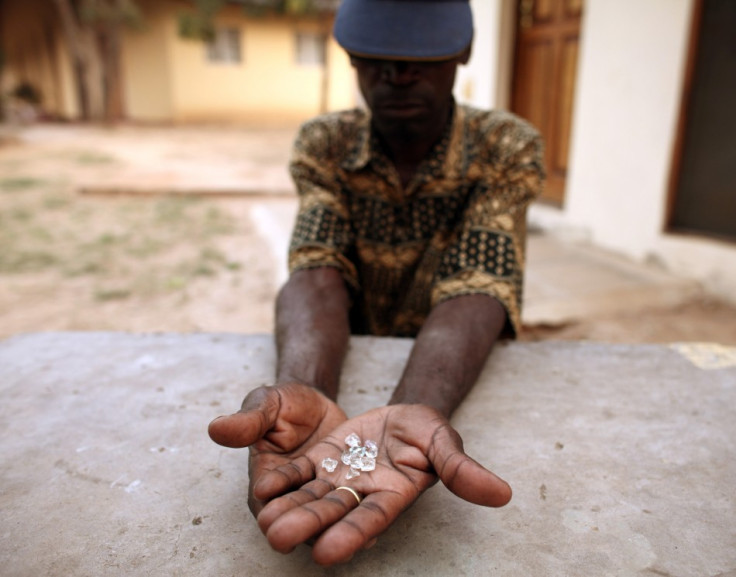From Hollywood to the Boardroom: Why Firms Must Quash the Thirst for Blood Diamonds

The trade of blood diamonds is something that the world has become increasingly concerned with in recent years. Once a relatively unknown issue, it was thrown into the spotlight with the release of a Hollywood film in 2006. Since then, we have seen an endless stream of celebrities speak out about the trade and calls for the industry and international governments to address it.
The Kimberly Process
However, as the spotlight starts to fade, it is important that the subject remains a high profile one.Today, conflict diamonds are still being used to fund insurgency in warzones.
This week, at the annual Kimberly Process Intercessional in Shanghai, we were once again reminded of the importance of stemming the flow of blood diamond trading.
The fact is the trade still exists because there is a demand for it but, ultimately, the rough diamond trade needs to be challenged. Over a quarter of rough cut diamonds in circulation are being processed as blood diamonds.
A ground-breaking report back in 1998 was one of the first to call out the issues of the trade; exposing the role of diamonds funding war in Angola. Since then, the launch of the Kimberly Process has made the most significant steps towards battling the issues surrounding the trade.
The Kimberly Process has grown rapidly in recent years and now has 54 participants, representing 81 countries. A joint government, industry and social society initiative, it was set up to encourage discussion and seek to stem the flow of blood diamond trading. More recently, it has also implemented a certification scheme for diamonds in partnership with the United Nations General Assembly.
Taking a stand
Events like the one in Shanghai are great for ensuring the debate stays alive but more needs to be done to eliminate the trading of blood diamonds and the issues associated with it.
The increased level of regulation The Kimberly Process aims to put in place is still having little impact in some of the biggest rough diamond mines. In Seurat, India, for example, the lack of regulation makes it impossible to tell which diamonds are legal.
The fact is that while these processes go some way towards addressing the issue, really it is the industry that needs to take a stand.
People want cheap diamonds and often they are unaware or overlook the fact that these are sourced from corruption
People want cheap diamonds and often they are unaware or overlook the fact that these are sourced from corruption. However, jewellers do have the overview of the whole market – and they are the ones who can change what is delivered to consumers.
It's about cutting out the middle man. Currently there are around nine steps between the mine and a diamond arriving at the jewellers but, if stones are soured directly or jewellers take the time to identify the source, that can be dramatically reduced. Not only that, but less stages mean a lower cost – beneficial to both the jeweller and stemming the demand of these diamonds.
The industry also needs to do more to educate its customers. Despite the recent publicity, consumers still know little about the trade and the jewellery they are buying. Jewellers need to take responsibility; telling customers the truth about the industry and sharing the importance of The Kimberly Process.
Fundamentally, if consumers stop buying these diamonds, we can cut off the demand. Instead, we need to provide them with reasonably priced, legally sourced stones.
The Only Way is Ethics
What is essential to remember is that ethics and people are an integral part to any business.
Paying more attention to the supply of stones is not just about doing 'good' but, in today's businesses environment it addresses the need for organisations to be more socially ethical.
In order to have a real impact, the whole industry needs to take a step back and really look at the supply chain and start educating consumers
What I have found is that the industry needs to overcome fear and face the issues head on. By being more directly involved in the sourcing of diamonds, I have been able to build a business that is sustainable, profitable and socially responsible.
Visiting the places where our diamonds are sourced and meeting the local communities allows us to ensure that the process is sustainable and that we are preventing the flow of blood diamonds.
It takes more than just one road block though.
In order to have a real impact, the whole industry needs to take a step back and really look at the supply chain and start educating consumers.
Ultimately, the benefits are three-fold; positively benefiting the business' bottom line, proving more ethical and sustainable for the local community and, vitally, it achieves the main goal of preventing the unwarranted and illegal trading of blood diamonds.
Steve Bennett, CEO, The Genuine Gemstone Company
© Copyright IBTimes 2025. All rights reserved.





















